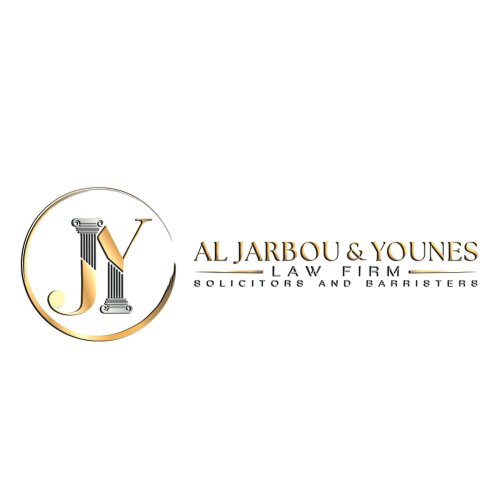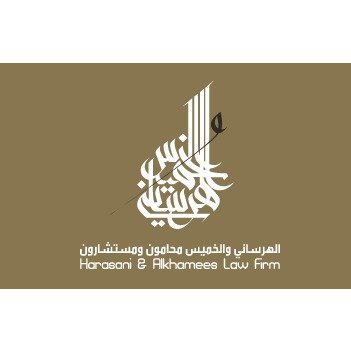Best Renewable & Alternative Energy Lawyers in Riyadh
Share your needs with us, get contacted by law firms.
Free. Takes 2 min.
List of the best lawyers in Riyadh, Saudi Arabia

About Renewable & Alternative Energy Law in Riyadh, Saudi Arabia
The field of Renewable and Alternative Energy law in Riyadh, Saudi Arabia, is rapidly developing as the Kingdom advances its ambitious Vision 2030 goals. This vision prioritizes diversification of energy sources, increased reliance on renewables, and energy sector reform. Solar and wind power projects are expanding, and the government has issued regulations and incentives to support foreign and local investment in clean energy. Laws in this area cover land use, permitting, financing, project development, environmental compliance, and various aspects of energy generation and distribution. Both Saudi and international investors must navigate a complex legal landscape that balances national interests with private sector opportunity.
Why You May Need a Lawyer
Engaging with Renewable and Alternative Energy projects in Riyadh involves multiple legal considerations and potential challenges. Here are some common situations where seeking legal expertise is essential:
- Understanding regulatory requirements for developing or investing in solar, wind, or other renewable energy projects.
- Navigating government permits and licensing processes.
- Negotiating Power Purchase Agreements (PPAs) and other contracts with government agencies or private entities.
- Handling land acquisition, zoning, and environmental impact assessments.
- Protecting intellectual property related to renewable energy technologies.
- Structuring project finance and joint ventures in compliance with Saudi laws and regulations.
- Addressing tariff, subsidy, or incentive disputes.
- Ensuring compliance with Saudization and other local workforce requirements.
- Resolving disputes that may arise during project development or operation.
- Advising on cross-border issues involving foreign investors or suppliers.
Local Laws Overview
Saudi Arabia’s legal framework for renewable and alternative energy is evolving, with several core regulations and government bodies playing crucial roles:
- The Saudi Vision 2030 and the National Renewable Energy Program (NREP) set policy directions and targets for renewable sector growth.
- The Ministry of Energy is the primary regulator, issuing licenses and overseeing compliance.
- The Saudi Electricity and Cogeneration Regulatory Authority (ECRA) provides market regulation, technical standards, and tariff guidelines.
- The Public Investment Fund and Saudi Aramco are significant stakeholders in large-scale renewable projects.
- The Saudi Center for Energy Efficiency (SEEC) guides energy efficiency standards and practices.
- Environmental requirements are administered by the National Center for Environmental Compliance (NCEC).
- Foreign investment is overseen by the Ministry of Investment (MISA), which coordinates investment approvals and incentives.
- Renewable project developers must comply with local labor, land ownership, procurement, and environmental laws.
Saudi Arabia also adopts international standards and best practices for project quality and environmental protection. However, each project type and scale may require a unique legal approach to ensure full compliance.
Frequently Asked Questions
What types of renewable energy are being promoted in Riyadh and Saudi Arabia?
The most promoted types are solar (photovoltaic and thermal), wind, and to a lesser extent, waste-to-energy and geothermal. Solar energy is the current primary focus due to Saudi Arabia’s climate.
Do foreign companies need a local partner to invest in renewable energy?
While historically foreign investors needed a local partner, reforms now allow for 100 percent foreign ownership in certain renewable energy projects, subject to approval and licensing by the Ministry of Investment.
What are the main steps to obtain a renewable energy project license?
The primary steps include submitting an application to the Ministry of Energy, providing a feasibility study, securing environmental approvals, fulfilling land use requirements, and meeting technical and financial criteria as set by ECRA.
Are there government incentives for renewable energy projects?
Yes, incentives may include preferential tariffs, tax benefits, customs duty exemptions, and support in obtaining permits. The exact incentives depend on the project’s size and nature.
How are environmental standards enforced in renewable energy projects?
Projects must adhere to standards set by the National Center for Environmental Compliance. Environmental Impact Assessments are often required as part of the initial project approval process.
What are Power Purchase Agreements (PPAs) and are they common?
PPAs are contracts to sell and buy power at agreed terms and rates. In Saudi Arabia, PPAs are common for large-scale projects, often with the Saudi Electricity Company as the purchaser.
What are the key risks in developing renewable energy projects in Riyadh?
Risks include regulatory changes, land acquisition challenges, grid connection delays, currency and financing risks, and ensuring compliance with local labor and procurement laws.
Can residential or small business owners install solar panels freely?
There are regulations covering residential and small commercial solar installation, including technical standards and requirements for connecting to the national grid. Approval from relevant authorities is required.
Are there opportunities for public-private partnerships (PPPs) in renewable energy?
The Saudi government encourages PPPs for large-scale renewable energy projects, often releasing tenders for private sector participation under the National Renewable Energy Program.
How can a lawyer assist with renewable energy contracts?
A lawyer can draft, review, and negotiate contracts, ensuring they comply with Saudi law, fairly allocate risks, and protect your rights in areas such as pricing, timelines, penalties, and dispute resolution.
Additional Resources
For further information or support, consider contacting or consulting these resources:
- Ministry of Energy - For project licensing and sector policy information.
- Ministry of Investment (MISA) - For investment regulations and incentives.
- Electricity and Cogeneration Regulatory Authority (ECRA) - For technical standards and regulatory compliance.
- National Center for Environmental Compliance (NCEC) - For environmental permits and compliance matters.
- Saudi Center for Energy Efficiency (SEEC) - For energy efficiency regulations and guidelines.
- Chambers of Commerce in Riyadh - For business guidance and local contacts.
- Saudi Bar Association - For finding qualified legal professionals.
Next Steps
If you need legal assistance relating to renewable or alternative energy matters in Riyadh, Saudi Arabia, consider the following steps:
- Define your project or legal concern, including its scale and stage of development.
- Gather relevant documentation such as land titles, business licenses, existing contracts, and project plans.
- Reach out to a lawyer or law firm experienced in renewable energy and Saudi regulatory compliance.
- Consult with regulatory bodies to clarify requirements for your specific situation.
- Arrange an initial legal consultation to assess your options and risks.
- Work closely with your legal advisor to manage applications, contracts, and compliance from project inception to operation.
Early legal advice can help you avoid costly mistakes, ensure that your project meets legal requirements, and protect your interests in this dynamic and growing sector.
Lawzana helps you find the best lawyers and law firms in Riyadh through a curated and pre-screened list of qualified legal professionals. Our platform offers rankings and detailed profiles of attorneys and law firms, allowing you to compare based on practice areas, including Renewable & Alternative Energy, experience, and client feedback.
Each profile includes a description of the firm's areas of practice, client reviews, team members and partners, year of establishment, spoken languages, office locations, contact information, social media presence, and any published articles or resources. Most firms on our platform speak English and are experienced in both local and international legal matters.
Get a quote from top-rated law firms in Riyadh, Saudi Arabia — quickly, securely, and without unnecessary hassle.
Disclaimer:
The information provided on this page is for general informational purposes only and does not constitute legal advice. While we strive to ensure the accuracy and relevance of the content, legal information may change over time, and interpretations of the law can vary. You should always consult with a qualified legal professional for advice specific to your situation.
We disclaim all liability for actions taken or not taken based on the content of this page. If you believe any information is incorrect or outdated, please contact us, and we will review and update it where appropriate.
















